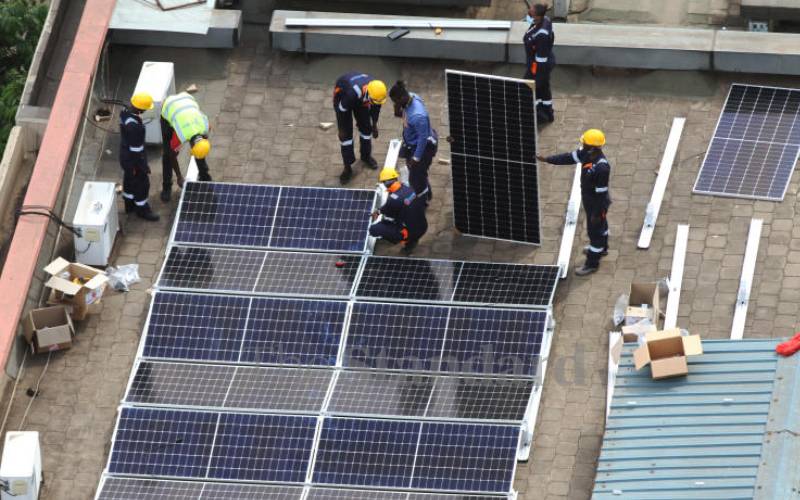×
The Standard e-Paper
Home To Bold Columnists

Of the dozens of solar power generation licences it has issued, only a handful of the plants directly supply to the grid. [Elvis Ogina, Standard]
Last week, two tea factories expressed interest in setting up solar power plants within their facilities in a race to reduce their power bills.